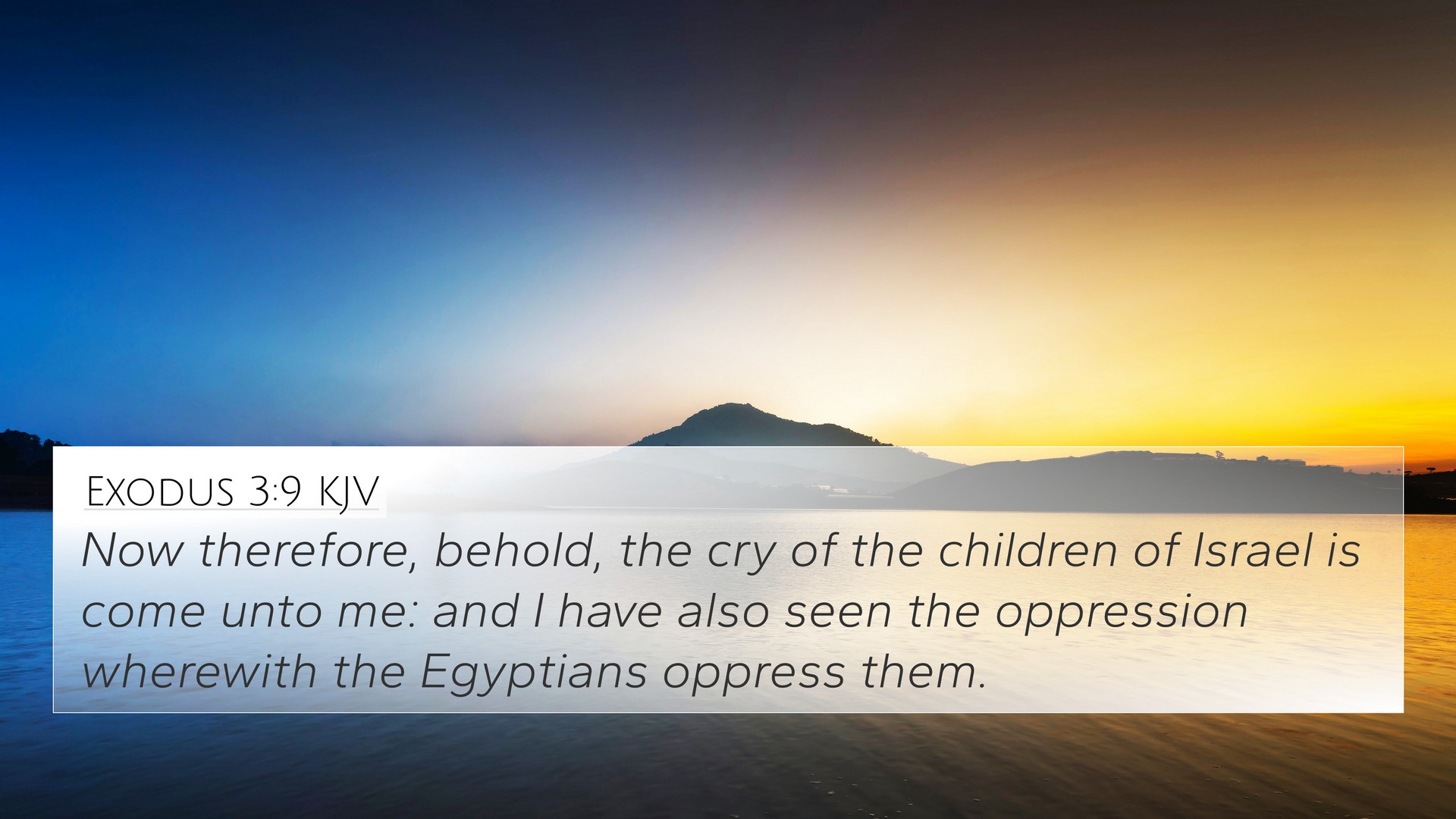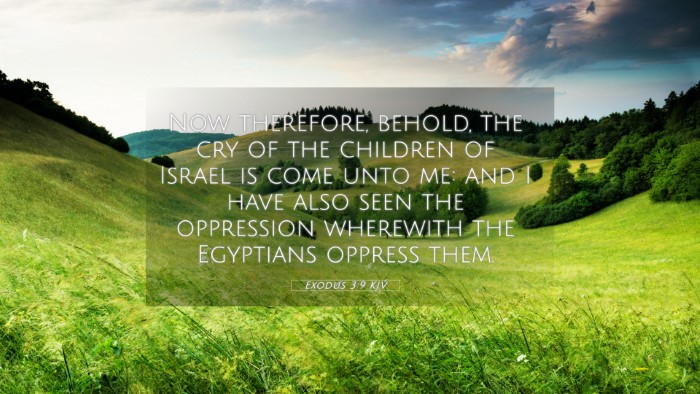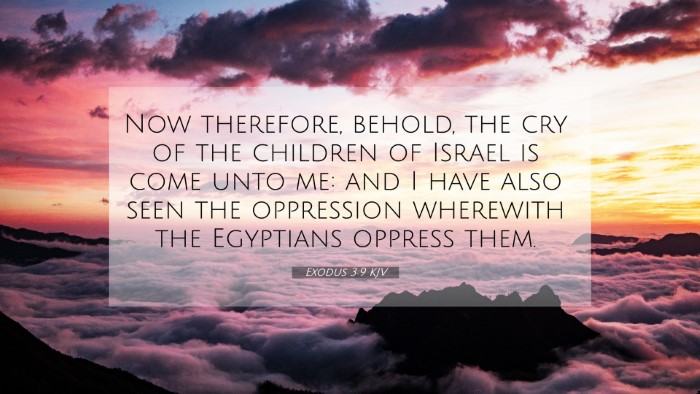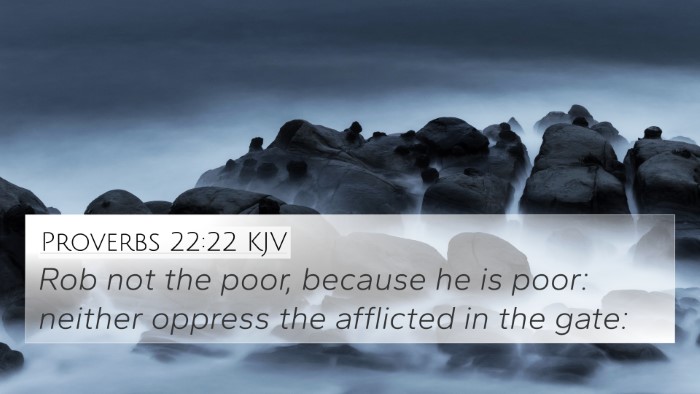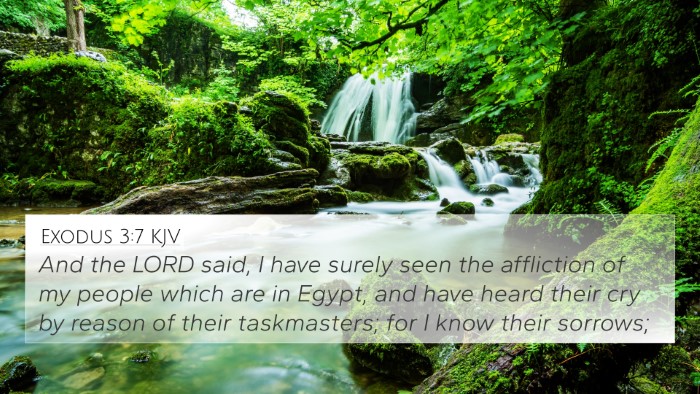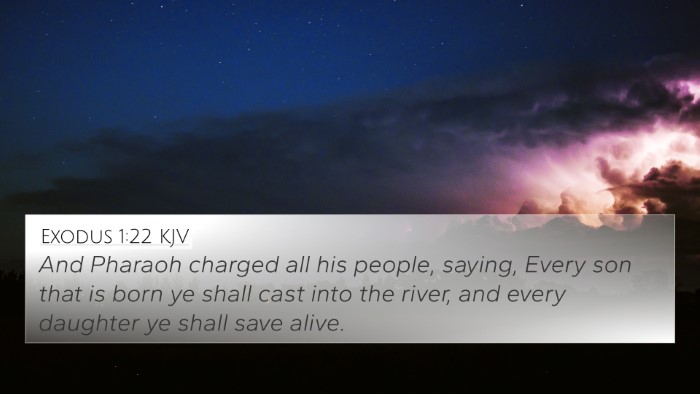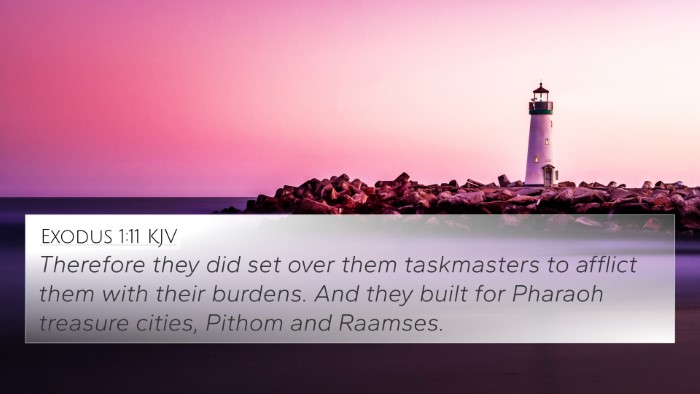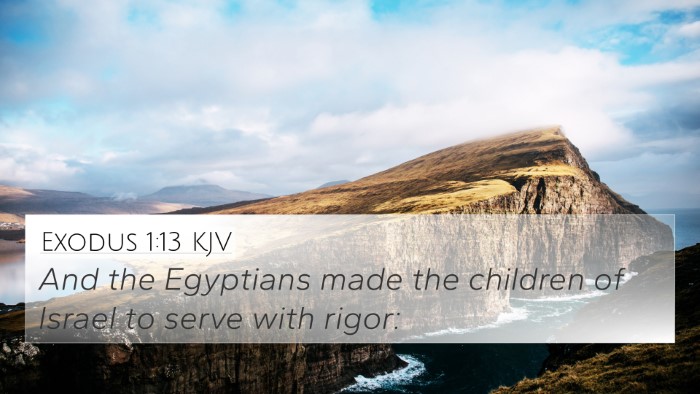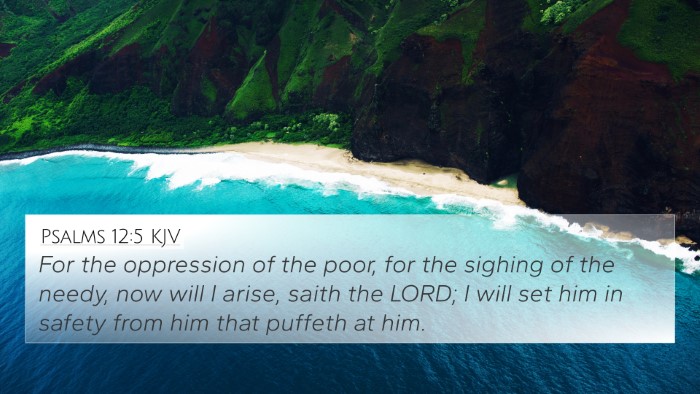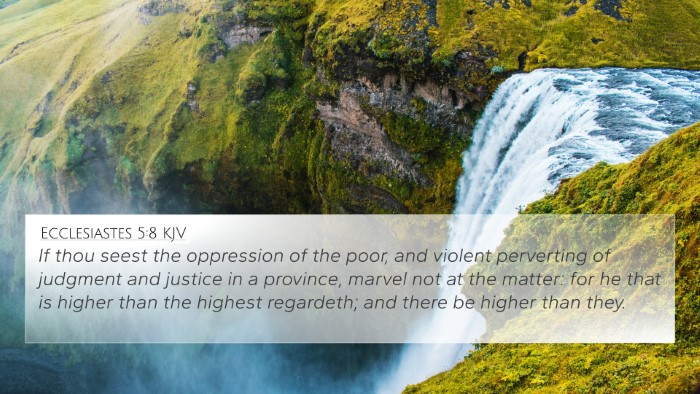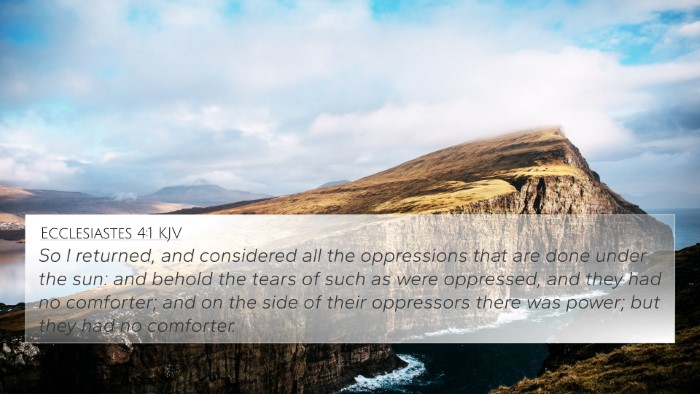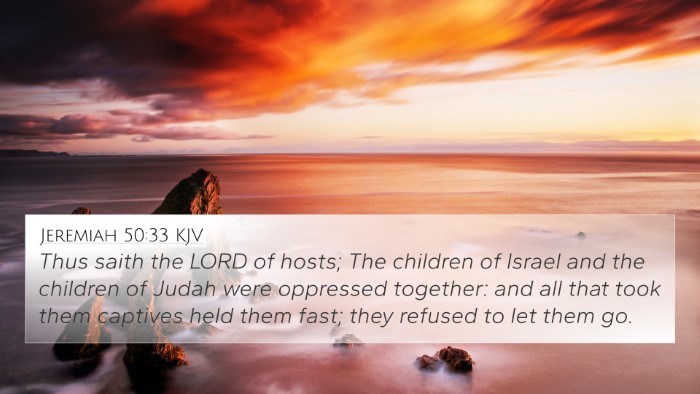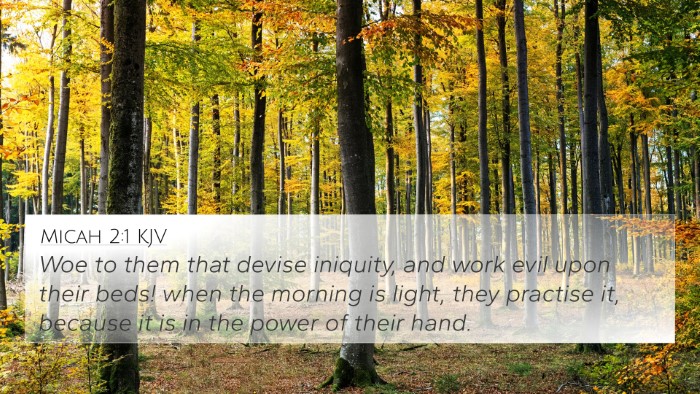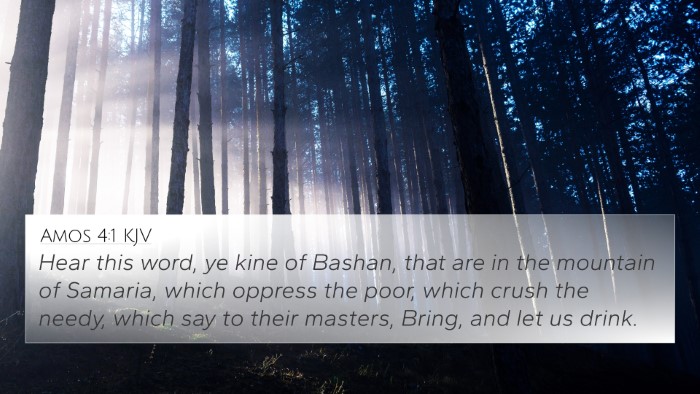Understanding Exodus 3:9
This verse, found in the book of Exodus, marks a pivotal moment in the biblical narrative where God reveals His concern for the suffering of the Israelites in Egypt. The verse states:
"Now therefore, behold, the cry of the children of Israel is come unto me: and I have also seen the oppression wherewith the Egyptians oppress them."
Meaning and Insights:
The verse reflects God's awareness and responsiveness to the plight of His people. Here are some key interpretations:
- Divine Awareness: Matthew Henry emphasizes that God hears the cries of His people. This implies that nothing goes unnoticed by God, and He is ever attentive to the prayers and sufferings of His followers.
- God's Compassion: Albert Barnes points out that God’s response to Israel's suffering reveals His profound compassion. God is not detached but is involved in the struggles of humanity, validating their suffering.
- The Issue of Oppression: Adam Clarke elaborates on the oppression faced by the Israelites, highlighting the systemic slavery imposed by the Egyptians. This offers a reminder of the injustices present in the world, prompting a call to action for liberation.
Cross-References and Thematic Connections:
This verse not only expresses God's immediate concern but also connects to several key themes and other Bible verses that resonate with its message. Notable cross-references include:
- Genesis 16:11-12 - God hears the cries of the enslaved Hagar, illustrating a theme of divine attentiveness to those who suffer.
- Psalms 34:17 - "The righteous cry, and the Lord hears, and delivers them out of all their troubles." This reinforces the idea that God responds to the cries of His people.
- Psalms 106:44-45 - "Nevertheless, he regarded their affliction, when he heard their cry: and he remembered for them his covenant." This reflects the covenant relationship between God and His people amidst their struggles.
- Isaiah 61:1 - "The Spirit of the Lord is upon me, because the Lord has anointed me to proclaim good news to the poor. He has sent me to bind up the brokenhearted, to proclaim liberty to the captives." This connects God's mission of liberating those in distress.
- Matthew 10:31 - Jesus reassures that God cares for all, including the oppressed and marginalized, mirroring His concern shown in Exodus.
- Luke 4:18 - This highlights Jesus' fulfillment of Isaiah's prophecy, emphasizing the continuity of God’s mission of delivering oppressed people across the scriptures.
- Romans 8:28 - "And we know that in all things God works for the good of those who love him, who have been called according to his purpose." This links the idea of God’s providential care amidst suffering.
- Revelation 21:4 - A future promise that God will wipe away every tear and eliminate suffering, reinforcing His concern for human affliction.
Thematic Bible Verse Connections:
The echoes of Exodus 3:9 resonate throughout Scripture, illuminating various themes such as:
- God’s Deliverance: The continual narrative of God delivering His people is a central theme, reflecting His unwavering commitment to justice and mercy.
- God's Presence in Suffering: The assurance that God is present with those enduring hardship is a comforting and recurring message in both the Old and New Testaments.
- Divine Mercy and Grace: Throughout the texts, God's grace extends to the marginalized, much like His ears are inclined to Israel's cries.
Practical Applications of Cross-Referencing:
Using cross-references in Bible study can enrich understanding. Below are some tools and methods to explore connections between Bible verses:
- Bible Concordance: Utilize a concordance to find various verses that mention key themes or words.
- Bible Cross-Reference Guide: Many Bibles come with built-in cross-references that indicate related verses, making it easier to explore thematic connections.
- Cross-Reference Bible Study: Engaging in studies that focus specifically on how various verses correspond can deepen comprehension of Scripture as a unified message.
- Identifying Connections: Analyzing the links between Old and New Testament passages can illuminate how God’s redemptive plan unfolds throughout the Bible.
- Detailed Comparative Studies: Conducting comparative studies between different books of the Bible, such as the Prophets and the Gospels, can reveal the evolving discourse in God’s communication with humanity.
Conclusion:
Exodus 3:9 is a deep well of meaning, reflecting God’s attunement to human suffering and His promise of deliverance. By utilizing a variety of cross-references and methodologies for study, believers can uncover layers of meaning and application, enhancing their faith journey.
